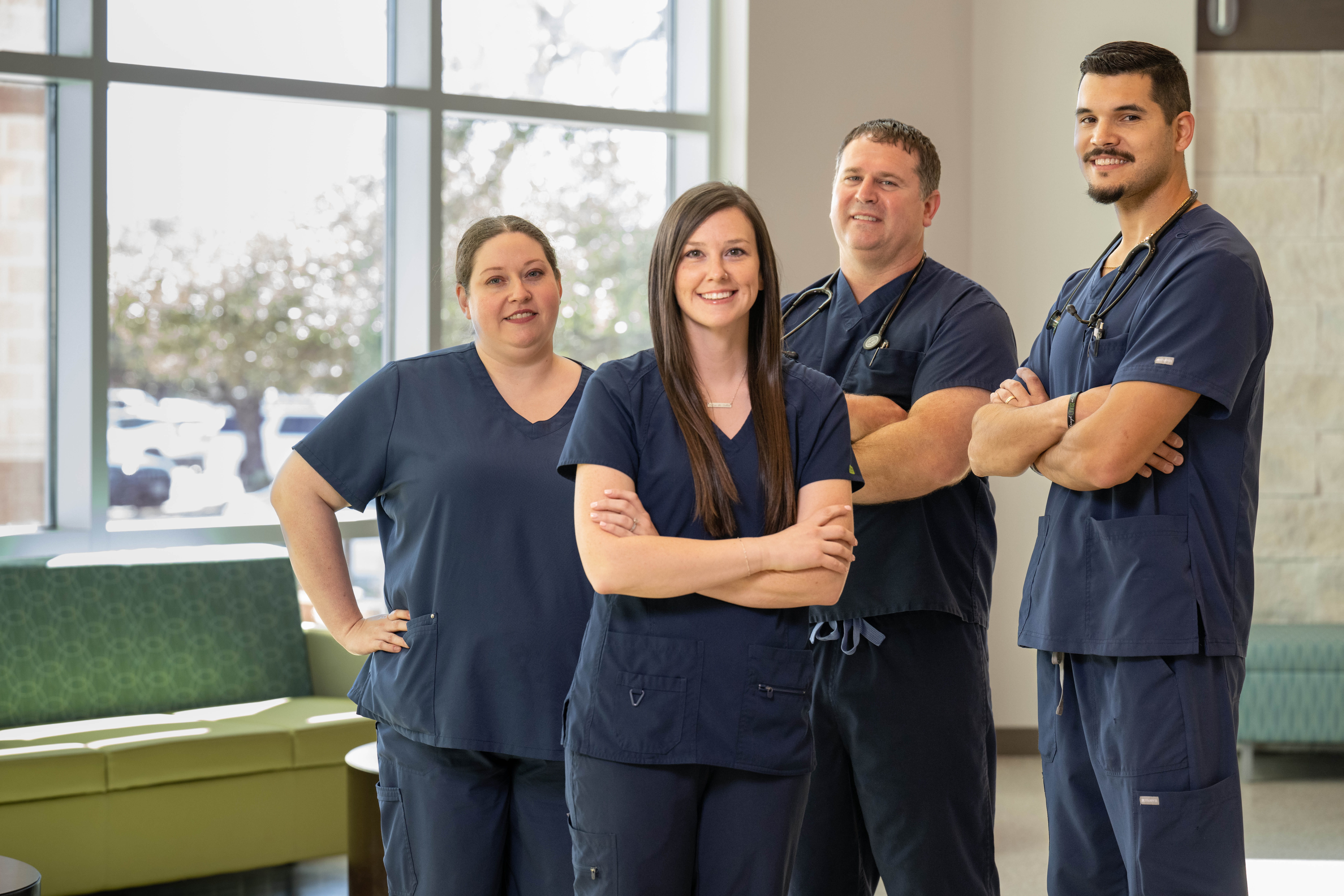Education and Training
At the Center, we’re focused on supporting and growing the rural nursing workforce—because strong communities start with strong care.
We bring together hands-on clinical experience and classroom learning through certificate programs and continuing education, all designed with rural needs in mind.
It’s about meeting people where they are and helping them thrive right there.
Partnership
We’re all about building lasting, meaningful partnerships—with agencies, health care facilities, organizations, and more—across the great state of Texas.
Why? Because rural and underserved communities deserve access to high-quality care, and we’re here to help make that happen.
By working together, we’re tackling the nursing shortage and helping ensure every Texan has the support they need, right where they live.
Health Care Quality and Outcomes
Did you know that over 3.2 million Texans live in rural communities? That’s more than the populations of 18 U.S. states!
At the Center, we’re committed to listening, learning, and truly understanding what rural communities need when it comes to health and well-being.
Through research and partnerships, we work side by side with these communities to support what matters most to them.
Center for Rural Health and Nursing
At our Center, we’re working hard to make sure folks in rural Texas can get the quality health care they deserve. By building strong, lasting partnerships between the UTA College of Nursing and Health Innovation and rural communities across the state, we’re helping expand access to care and strengthen local health systems. Through these partnerships, we’re also tackling the nursing shortage by educating and supporting the next generation of nurses to serve where they’re needed most.


Nursing Shortage
A Texas Center for Nursing Workforce Studies Info graphic from 2024 reports that there are 243,702 registered nurses (RNs), 59,184 licensed vocational nurses (LVNs), and 37,739 advanced practice registered nurses (APRNs) practicing nursing in Texas. Like many states and the nation as a whole, Texas is facing a shortage and maldistribution of nurses.
Barriers to Access
Barriers to rural health care—like long distances to services, shortages of local providers, and limited funding—continue to make access difficult for many communities across Texas. These same challenges also limit opportunities for expanding nursing education in rural areas, where it’s most needed. Without access to local pathways for initial or advanced nursing education, it becomes harder to grow the workforce of registered nurses, nurse practitioners, and mental health providers serving rural Texans.
At the UTA Center for Rural Health and Nursing, we’re working to break down these barriers through innovative tools like our Mobile Simulation Unit and the Igloo Immersive Training Room—bringing high-quality clinical education and simulation experiences directly to rural communities.
If your organization provides rural health care in Texas and would be interested in partnering to host local clinical education opportunities for nursing students, we’d love to connect and explore the possibilities together.

